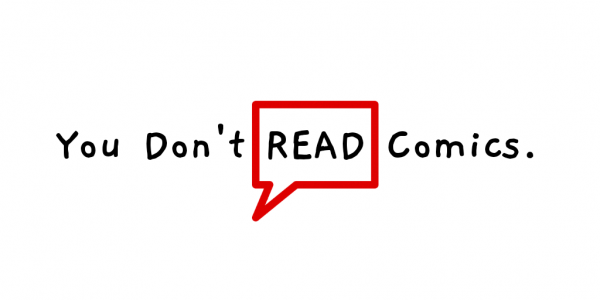Not All Robots #2 // Review
There's a lot of unrest in the world. Tensions are high as the two political ends of society threaten to tear each other apart in a violent civil war. This is not the left and the right or the red and the blue, though. This is biological and technological. This is Not All Robots #2. Writer Mark Russell's strange cultural satire continues into a second issue with art by Mike Deodato Jr. The darkness continues to amplify in the second issue as the comedy expands into fascinating territory with heightening tensions between human and robot. The silliness of some of the comedy still threatens to overtake the story's potential for a profound statement.
Razorball is feeling a lot of stress. Why is it that he's amassing so many weapons in his room? The father of the family that relies on him for income is reluctant to confront him even as his own children secretly attend a meeting of those humans looking for revolution. The robots that serve as the ruling class aren't exactly feeling very good themselves as a big corporation is about to release "mandroids" that look, and presumably act, more human. Human manslaughter in Orlando threatens to tear apart any civility left in a very tenuous situation.
Russell's imperfect allegory has its moments in its second issue. The quandary with the script continues to lie in the strange relationship between human and tech society. The androids are already WAY too human to feel like a solid statement on the nature of automation. The contrast between humans and androids is a bit too idiosyncratic to serve as a genuine look at the nature of capitalism or race relations in the Americas. Sci-Fi has done this sort of allegory so much better elsewhere in from Asimov to Alien Nation and beyond. Still... Russell's wit holds plenty of appeal to continue to draw the reader to the page.
Deodato Jr.'s art has feels a bit more cleverly articulated this issue than it did in the first. Razorball is still largely defined by the dialogue as he trudges back and forth to work. The emotionless soullessness of the robots' appearance feels cold, which feels pretty effective in its representation of human/robot relations, but has trouble showing real emotion on the panel. The dialogue DEFINITELY gives a sense of the feeling of the robots' going through, but it's difficult to feel any of that in the art.
The series has real potential to cast weird electric light into the beating heart of inter-human relations with a deep look into the nature of technology. Still, Russell seems a lot more interested in creating a world that feels strangely unlike our own with weirdly appealing contrasts to current political pop culture. This isn't a bad thing, it just kind of feels like a missed opportunity to do something more profound. This is not to say that greater depth might not be around the corner. The series is just getting going in its second issue. There's plenty of opportunities to get deeper into the satire.










